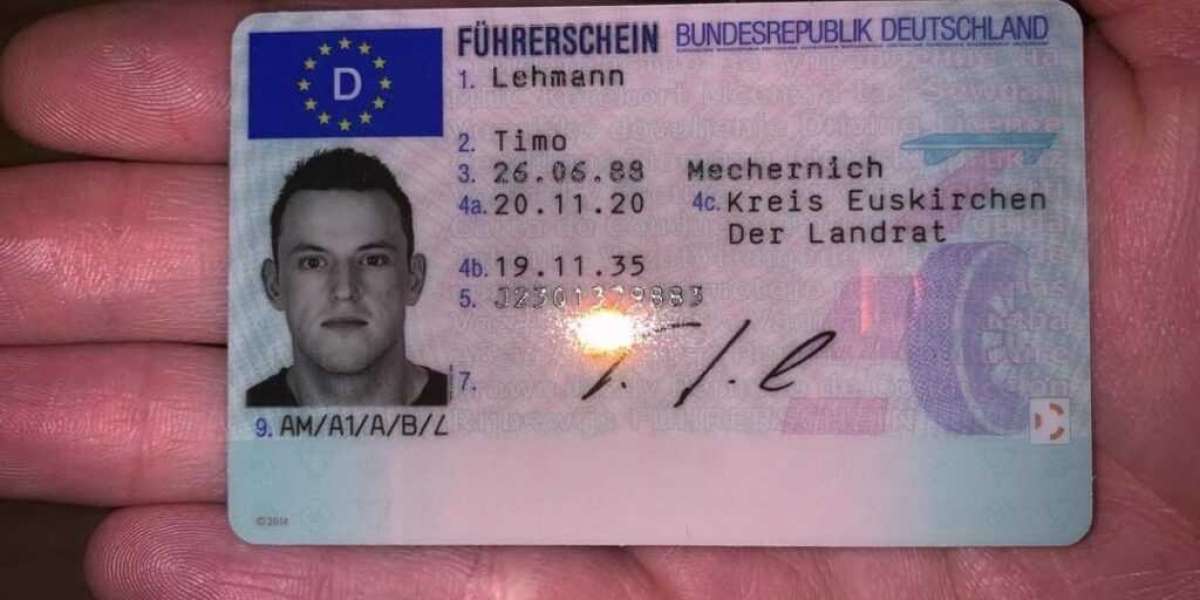Overcoming the Fear of the Driving Test: A Comprehensive Guide
For many people, the driving test represents a considerable turning point in their journey toward independence and mobility. Nevertheless, for a substantial variety of candidates, the worry of the driving test can be frustrating. This article explores the mental and practical aspects of this fear, providing insights into how to handle and Trike-FüHrerschein Kaufen (Expressdeutschekartes.Com) eventually overcome it.
Understanding the Fear of Driving Tests
Worry of driving tests, typically classified as "test stress and anxiety," can originate from different sources. These include:
- Fear of Failure: Many candidates hesitate of failing, which can cause deep sensations of insufficiency or embarassment.
- Pressure from Others: Expectations from family, pals, or peers can increase stress levels and worsen anxiety.
- Absence of Experience: Novice motorists might feel frightened by the complexity of the test, specifically in unfamiliar driving conditions.
- Unfavorable Past Experiences: Previous failures or adverse experiences, such as accidents, can contribute considerably to test anxiety.
Recognizing the origin of driving test stress and anxiety permits prospects to address their worries in a positive way.
Coping Strategies for Managing Test Anxiety
Practical Techniques
Preparation and Practice: Familiarity with the test format and driving maneuvers is important. Prospects need to practice driving frequently, ideally under different conditions.
Mock Tests: Participating in mock driving tests with a trainer or a trusted friend can assist simulate the real test environment, decreasing anxiety on the test day.
Positive Visualization: Visualization techniques can be useful. Candidates should picture themselves effectively finishing the driving test, which can help develop confidence.
Breathing Exercises: Simple breathing methods can help calm nerves. Prospects can take deep breaths before and during the test to reduce stress and anxiety.
Psychological Approaches
Cognitive Behavioral Therapy (CBT): For extreme stress and anxiety, candidates may benefit from expert assistance. CBT can assist in reshaping unfavorable idea patterns connected with testing.
Mindfulness and Relaxation Techniques: Engaging in mindfulness practices, such as meditation or yoga, can cultivate a sense of calm and lower general anxiety levels.
Value of Support Systems
Having a supportive network can significantly ease the pressures associated with the driving test. Here are a couple of methods support systems can contribute:
- Emotional Support: Friends and family can offer motivation, assisting prospects feel less separated in their experience.
- Practical Assistance: Trusted people can accompany candidates on practice drives, providing useful feedback and reassurance.
- Comprehending and Patience: Acknowledging that anxiety is a typical experience allows candidates to feel more at ease about their worries.
The Driving Test Breakdown
Comprehending what to expect during the driving test can help alleviate anxiety. Below is a summarized table describing the typical components of a driving test:
| Component | Description |
|---|---|
| Pre-Drive Check | Prospects may need to demonstrate understanding of lorry controls and safety checks before driving. |
| Standard Control | Evaluation of basic driving maneuvers, such as steering, braking, and signaling. |
| Roadway Navigation | Prospects need to demonstrate their capability to follow roadway rules, navigate intersections, and handle traffic circumstances. |
| Parking Skills | Prospects are needed to accurately perform parking maneuvers, such as parallel parking or parking in a lot. |
| Post-Drive Assessment | A discussion with the examiner covering strengths and weak points observed throughout the test. |
Frequently asked question Section
Q1: Is it typical to feel anxious before a driving test?
Yes, it is entirely normal to experience stress and anxiety before a driving test. Numerous individuals share these sensations, called test anxiety.
Q2: How can I relax my nerves on the day of the test?
Participating in mindfulness practices, such as meditation or deep breathing, can assist reduce nerves. In addition, showing up early to the testing site to acclimatize to the environment can be advantageous.
Q3: What if I fail my driving test?
Failing the driving test is not an unusual event. It is vital to view it as a knowing opportunity. Assess the feedback offered by the inspector and focus on the areas that need improvement before retaking the test.
Q4: Can taking driving lessons decrease stress and anxiety?
Yes, expert driving lessons can increase self-confidence and proficiency, decreasing overall stress and anxiety about the test. Instructors can offer important insights into the test format and expectations.

Q5: How lots of times can I retake the driving test?
The variety of attempts to retake a driving test varies by place. Most jurisdictions provide particular guidelines relating to retaking tests, including waiting durations and extra fees.
The worry of the driving test is a common issue that can be effectively managed with the ideal strategies and assistance. By combining preparation with psychological coping techniques, prospects can significantly lower their anxiety and increase their opportunities of success. Remember, the driving test is not just a procedure of ability however also an opportunity for personal development and confidence structure.




